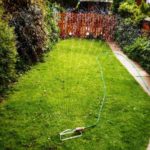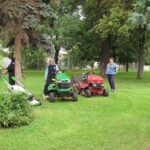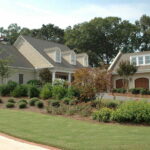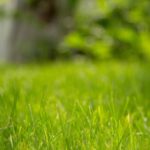
Looking for some basic secrets to lawn care in Orlando, FL? Lawn care is essential for Floridians looking to keep their outdoor spaces lush and beautiful.
With year-round sunshine and near-constant rain, it’s easy for your Orlando lawn to become overgrown, browned out, or otherwise damaged by the elements if you don’t stay on top of things. But with specific lawn care tips for Orlando and some basic supplies, you can keep your lawn looking its best year-round.
- 10 Lawn Care Secrets for Orlando
- 1. Mowing is Key to a Beautiful Lush Lawn
- 2. Timely Fertilizer, Please
- 3. Banish Weeds with Herbicide Applications
- 4. Pests, Be Gone!
- 5. Fight Winter Cold Snaps with Overseeding
- 6. Get Breathable with Core Aeration
- 7. Give it a Drink!
- 8. Clean Up Those Winter Leaves and Moss
- 9. Trim Away Unwanted Bushes and Hedges
- 10. Schedule Regular Lawn Inspections
- FAQ
10 Lawn Care Secrets for Orlando
Let’s hop right into the nitty gritty of lawn care in Orlando and learn how to take advantage of Florida’s tropical climate!
1. Mowing is Key to a Beautiful Lush Lawn
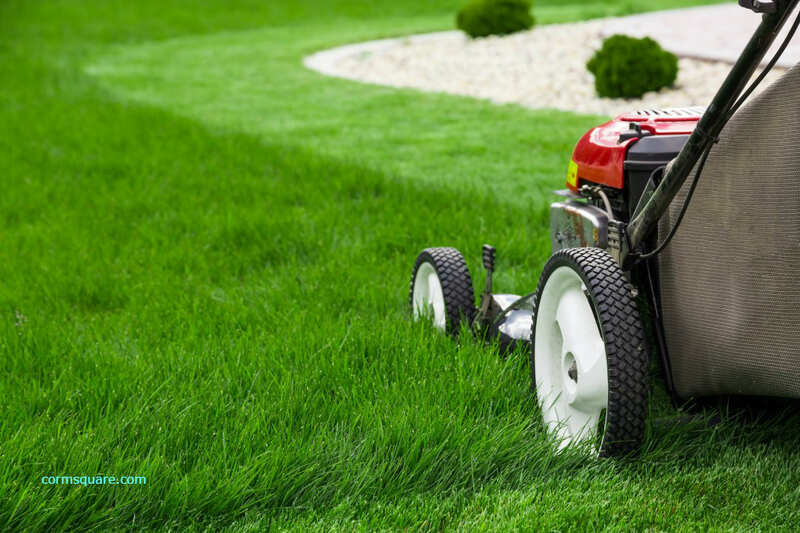
What’s worse than a jungle in your front yard? Nothing! A lawn mower is essential to keep those grass blades trimmed and looking crisp. Before you get ahead of yourself, always double-check which type of grass you have – whether it’s St. Augustine, Bermuda, or Bahiagrass – so you can choose the correct mowing height.
The most common grass types in Orlando are St. Augustine and Bahiagrass, which should be kept at 2 to 4 inches long, whereas Bermudagrass should be kept at 1 inch.
Before you mow, ensure your mower blade is sharp so you don’t chop off too much grass, which can lead to diseases like brown patch.
Lawn Pro Secrets:
- Turn your grass clippings into mulch for the soil – contrary to popular belief, they don’t contribute to thatch buildup and can actually help recycle nutrients into the soil.
- Set up a regular schedule for mowing your yard, and don’t let the schedule slip. Not paying attention can lead to extra work for you and the possibility of disease or pest development in your lawn.
- As the weather gets hotter and your lawn grows more vigorously, mow more frequently. When the summer rolls around, switch to mowing twice per week.
2. Timely Fertilizer, Please
Fertilizing can be just as beneficial for your turfgrass as taking vitamins is for you. Similar to mowing, fertilization should be catered to your grass type.
St. Augustine and Bahiagrass, Orlando’s favorite grass types, need two fertilizer applications every year – one in early spring and another right before the hot summer months – while Zoysia requires fertilization five times yearly.
It’s best to narrow down the nutrients your soil needs. Too much nitrogen in your lawn could be detrimental not just to your turf but also to the environment. Apply a slow-release, granular fertilizer and follow through with applications as needed.
Lawn Pro Secrets:
- Before you fertilize, test your soil’s pH level, which can be done with a soil test kit. Then use the right fertilizer to help balance out deficiencies.
- Don’t overwater the lawn after fertilizing, as this will dilute your fertilizer and cause runoff that can negatively impact natural water sources.
- Clean up well after you’re done – don’t let leftover fertilizer wash out into nearby streams or ponds.
3. Banish Weeds with Herbicide Applications
When Central Florida’s spring showers roll around, the last thing you want is an unruly lawn full of dandelions, crabgrass, broadleaf plantain, and other weeds.
Instead of hand-pulling unsightly weeds, it’s more efficient to use pre-emergent and post-emergent herbicides. Pre-emergent herbicides do just as the name implies – they stop weeds before they’ve even sprouted. Post-emergent herbicides kill the weeds already present in your lawn.
Only use the necessary amount of herbicide and pinpoint weed-prone areas. Overusing herbicides can do more harm than good to your turf and the environment.
Lawn Pro Secrets:
- Post-emergent herbicides are most effective when used on younger weeds. Established ones will require multiple applications to show visible results.
- Take a second to figure out the underlying cause of the weed problem – it just might be the result of over-irrigation or lawn disease.
- Choose an organic herbicide if you’re looking for a pet-friendly and natural form of weed control.
4. Pests, Be Gone!
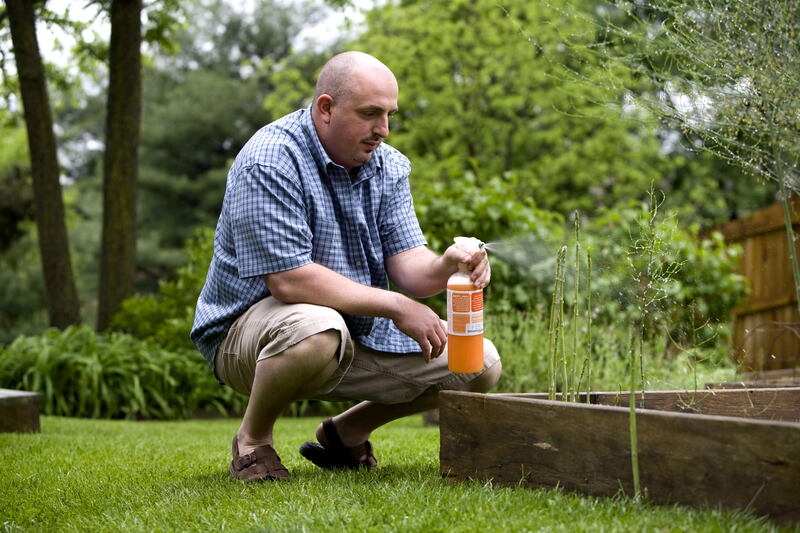
Nobody likes when pests come to crash their outdoor get-togethers. With Orlando’s sometimes unbearable humidity and frequent rain showers, pests can quickly make a home in your turfgrass. To combat the most common Orlando pests, like mosquitos, grubs, roaches, fire ants, and chinch bugs, you’ll most likely need to apply perimeter pesticide protection. This form of protection is both cost-effective and time-saving, and it keeps the pests off your lawn.
But, for the sake of health and safety, you might want to leave more extensive pest control issues to a professional pest control specialist.
Lawn Pro Secrets:
- Check that your chosen pesticide is effective for the specific type of pest in your lawn – sometimes, choosing the wrong one can do more harm than good.
- You’re always better off preventing pests in the first place, so make sure you don’t have any turf issues like waterlogged soil, overly compacted soil, or excessive thatch layers.
- As with herbicides, organic pest control recipes are far friendlier to the environment and safer for pets.
5. Fight Winter Cold Snaps with Overseeding
Warm-season grass might be ideal for Florida’s sunny climate, but overseeding your lawn with cool-season grass in fall might be a worthwhile investment. This can keep your lawn lusher and greener during the colder months.
For optimal overseeding success, give the lawn extra attention for the first few weeks by watering often and mowing only when the new grass is well-rooted and tall enough.
Lawn Pro Secrets:
- Determine which type of grass you have before starting. This helps you pick the right kind of grass seed for overseeding.
- Always mow the lawn beforehand to give grass seeds better access to the soil and a better chance of sprouting.
- Water deeply but infrequently – this will help generate deeper root systems for the new seeds to take hold.
6. Get Breathable with Core Aeration
Think of core aeration as a detox session for your grass. Aeration, which means pulling up little dirt plugs throughout your turf, helps relieve soil compaction and reduces thatch buildup. This allows your lawn to “breathe” easier.
Core aeration is recommended at least once a year, but it really depends on your grass type and the amount of wear and tear your turf is subjected to.
In addition, you should always aerate before overseeding to give seeds a better chance to take root in the new holes. This will help make a thicker, healthier lawn.
Lawn Pro Secrets:
- If you experience signs of soil compaction, such as standing water after rainfall, aeration might be necessary.
- Don’t try to use those spikey shoe contraptions you see online – they can increase your lawn’s compaction.
- Walk across the lawn with cleats on to test for any particularly hard patches – you’ll need to give those areas extra attention when aerating.
7. Give it a Drink!
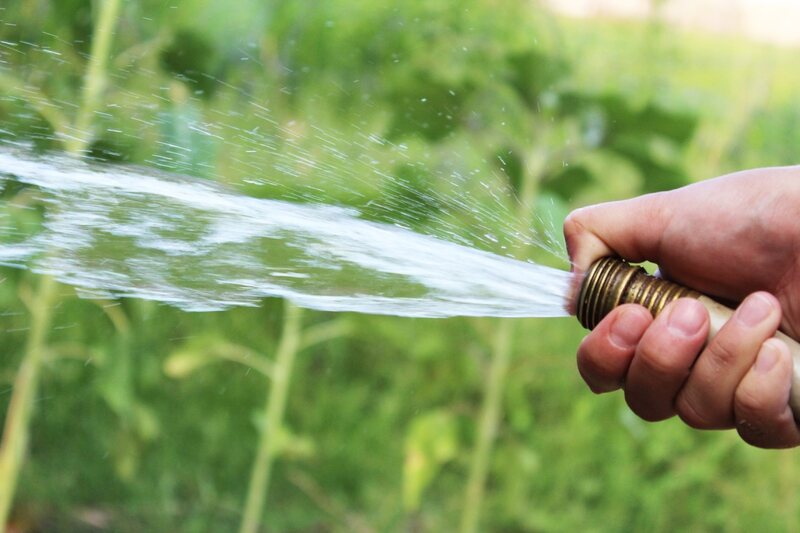
Water keeps plants and lawns alive, plain and simple. Luckily, in Central Florida, Mother Nature tends to give your grass plenty of rain throughout the year.
However, it’s still important to supplement with manual watering every so often, especially during dry spells experienced in summers and winters.
When it comes to watering your lawn, you want to avoid either underwatering or overwatering your turf. The key here is consistency – make sure you water evenly and more frequently in the hot summer months.
Lawn Pro Secrets:
- Look for signs of distress. Yellow-stained tips and wilting are telltale signs that your lawn needs some extra hydration.
- Test your soil’s water retention. You can do this easily by pushing a screwdriver into the ground and seeing how deep it goes before you hit resistance.
- Fall watering is especially important after fertilization. The water helps move those helpful solubles into the grass’s root system.
8. Clean Up Those Winter Leaves and Moss
A downside to Orlando being located in such a beautiful state is having to clean up leaves, sticks, and moss that trespass on your lawn during the winter months.
To avoid unwanted debris or buildup, create a schedule to rake loose-leaf material periodically – this also gives you an extra opportunity to survey any signs of damage.
Lawn Pro Secrets:
- Consider using a leaf blower if you’re clearing a large surface area.
- Don’t leave debris sitting in one area for too long, or it may begin to decompose and cause stress for the grass.
- If your lawn has moss, there might be other underlying issues, such as poor drainage, low light exposure, or the wrong fertilization balance.
9. Trim Away Unwanted Bushes and Hedges
Orlando’s foliage has a charm all its own, but trimming hedges, shrubs, and trees is important to promote fresh growth and maintain the health of both the plants and your lawn.
Removing overgrown areas makes room for the sun to reach all patches of grass evenly, and it shapes a more attractive landscape that you can be proud of. Always trim away branches that are rubbing against each other or hanging too close to your walkway or driveway, as these can cause accidents.
Lawn Pro Secrets:
- When in doubt, leave bush trimming to the experts. A crew of professionals can not only clean out those shrubs but can also advise you on the best tools to use and when.
- Get out your pruners in spring. Trimming away old growth lets new fruits, leaves, and flowers sprout.
- Check first for insects and diseases before starting any bush trimming sessions.
10. Schedule Regular Lawn Inspections
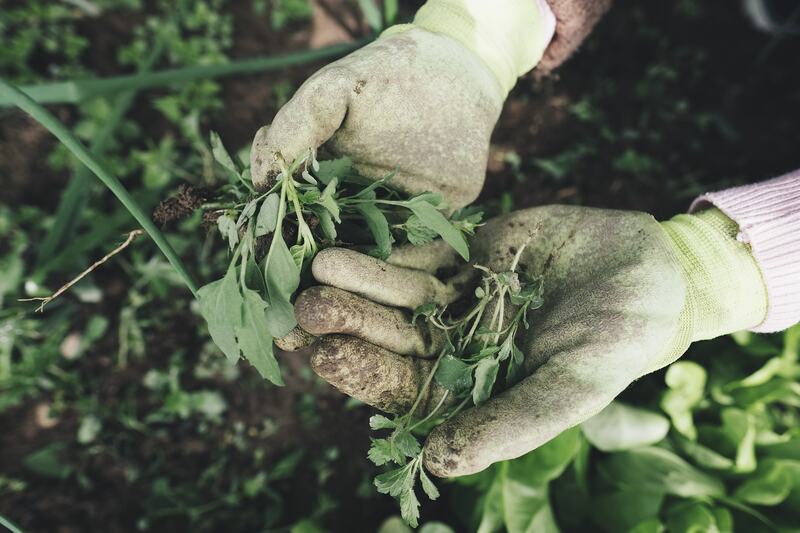
Think of a lawn inspection as a quick health assessment for your lawn. With so many moving parts to proper Orlando lawn care, there are sometimes external factors at play that you may not be able to identify without an experienced eye. A regular inspection can keep you ahead of any potential risks or issues.
Lawn Pro Secrets:
- Reputable companies have the know-how to spot any signs of weeds, pest problems, nutrient deficiencies, and other irregularities before they become worse.
- Beware of companies that push unnecessary additional services on you – a good lawn care team should create solutions tailored to your specific landscape maintenance needs and budget.
- If you want extra protection, you can always opt for a regular lawn care package. That way, you’re never left guessing if something is lacking in your lawn.
FAQ About Lawn Care in Orlando
Most lawns in Florida need to be mowed once per week, but this frequency may vary depending on the amount of rainfall and the season. During the summer months, twice-a-week mowing can help keep your grass healthier and prevent disease. This also depends on the type of grass planted in your yard.
For St. Augustine or Bahiagrass, you’ll want to keep the grass at two to four inches, and for Bermudagrass, a lower height of one inch is optimal.
Lawn care costs depend on the services your lawn requires and the size of the area. If you’re looking for basic care such as mowing, it will cost on average between $29 and $65, while more extensive services like aeration or fertilization range between $75 and $225, depending on the size of the area and the depth of services.
It all depends on the type of grass planted in your yard. Usually, St. Augustine and Bahiagrass will require two applications – one in early April and another in late June – while Zoysia needs five fertilization sessions annually.
It’s best to narrow down your soil’s exact nutrient needs versus overdoing it with nitrogen, as too much fertilizer can have a detrimental effect on your turf and the environment.
A Well-Maintained Burst of Greenery for Your Orlando Home
Curb appeal is a beautiful thing, and it all starts with having a clean, healthy lawn. Taking the extra steps to maintain your yard pays off when your guests ooh and ah over your mastery of Orlando lawn care.
If you need help along the way, there’s no shame in asking for professional assistance from a lawn care company in Orlando. After all, it is your lawn, and its beauty is a reflection of you!
Main Image Credit: Wallpaperflare
